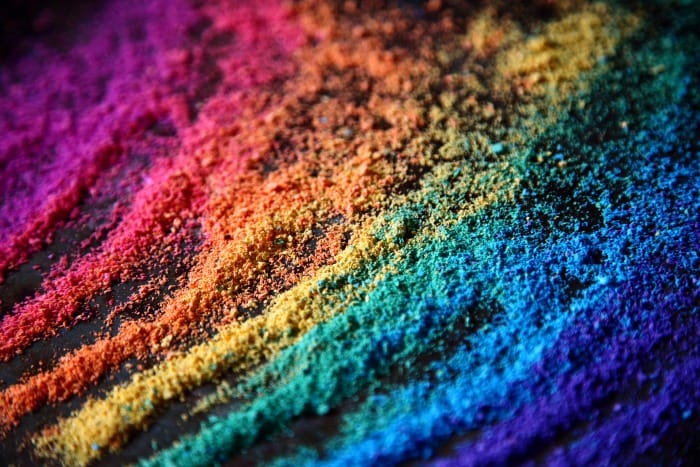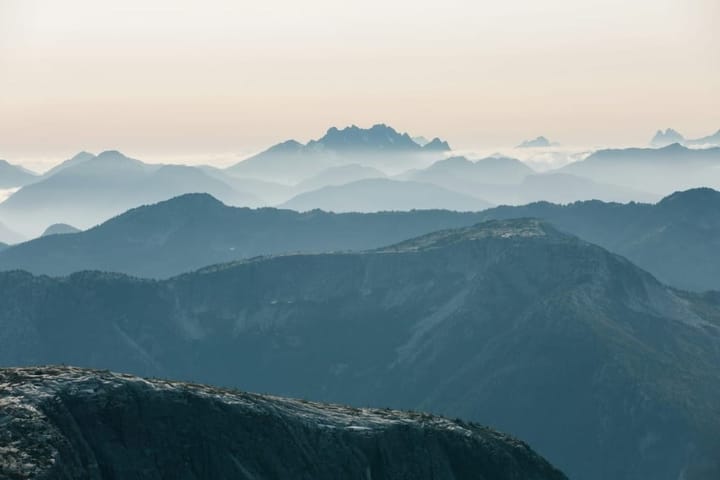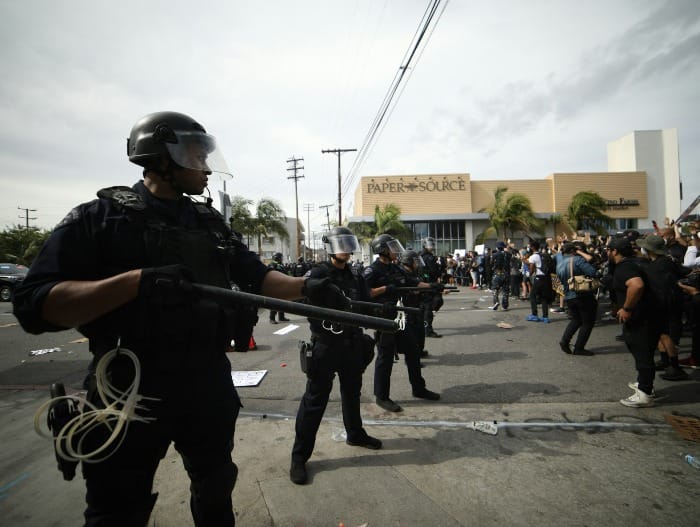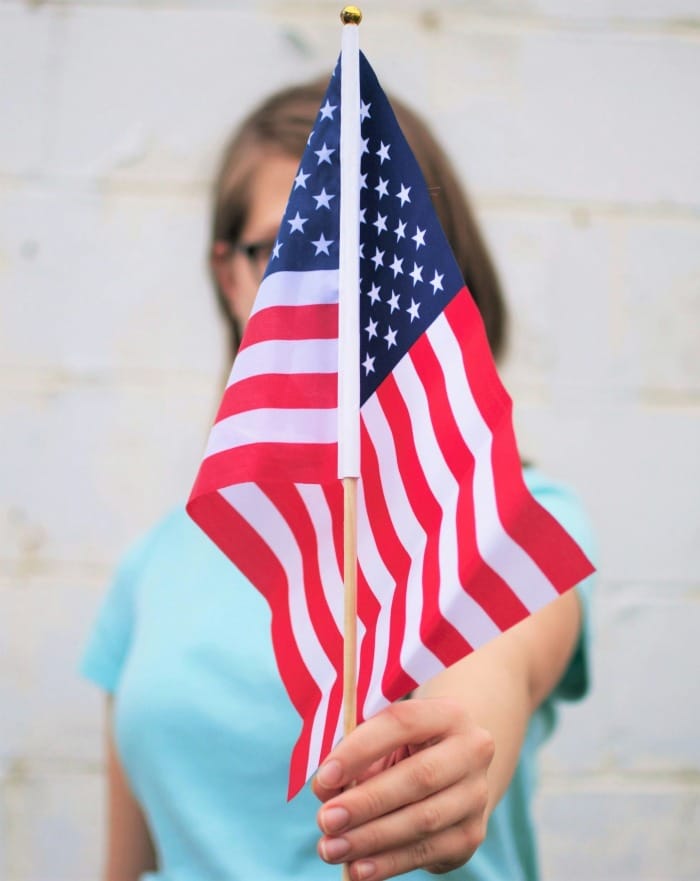The Lives of LGBTQ People in West Virginia
West Virginia might seem not to be the coolest place to be LGBTQ. It's a conservative state with a declining population, so you wouldn't expect to find many such people here. You'd expect, instead, that LGBTQ people born here might want out. Many do leave, but in fact many of them do stay.

West Virginia is called the Mountain State, but more realistically it is the Ridge State. The Appalachian mountains, among the oldest on earth, are naturally inclined to run as paralleling ridges, mainly on a north-south axis. People live in the river valleys between the ridges and consequently will see the rising sun later than those in the flatlands and they’ll see the sun set earlier. That’s where the dark hollows (‘hollers’ if you’re from West Virginia) come from. But those hollers are beautiful with the sun sparkling on the rivers running through them when the sun is overhead.
The ridges are also mostly unbending and unbroken, making it hard to travel from one valley into another. You have to ascend and then descend those ridges on poor excuses for roads, with more hairpins than you’d find on a Texas beauty queen prepping for a pageant. It’s a lot easier where I live in the Shenandoah and Potomac river valley west of the Blue Ridge Mountains, the easternmost of all those parallel ridges. The rivers here are strong enough to have carved out a broad valley so you get the full daily quotient of sun.
So the question of concern here is if there are LGBTQ people in those dark interior valleys in West Virginia. If so, what are they doing there? Is it just the rough roads that keep them there? Or are they willingly there?
Carrie Kline, a professional storyteller, several years ago came to Shepherdstown along with her husband to give a performance at the Speak Story program affiliated with Shepherd University. Carrie had several years previously taken on a research project to interview LQBTQ people in West Virginia. The material she collected didn’t come together for a performance, but it served instead as the core of an ensemble work for actors who could collectively represent the voices of the real West Virginians she had interviewed.
So while she and her husband did their own thing at the university, she solicited from the audience a group of people willing to perform the ‘play’ at Shepherd. And so it happened. She recruited twelve actors, all non-professionals with one exception, to rehearse and deliver the play in a single reading performance. I became one of those actors.
At my audition, I had the choice of portraying either of two characters. One of them was an 18-year-old queer male, the other a 72-year-old gay male. Kline’s interesting take on casting depended only on how your voice could command the role. It didn’t matter that you didn’t look anything like the original interviewee. In the final line up, we had men portraying women, a woman playing a man, straights playing gays, a heterosexual man playing a trans woman, a heterosexual woman playing a lesbian. And the age discrepancies were sometimes jarringly extreme when we later introduced ourselves to the audience.
So, having this unusual casting plan explained to me, I did my best to pretend I was an 18-year-old queer kid. I thought I did OK, but typecasting won out and I, the oldest cast member, ended up playing the oldest character. I became Ray, a 72-year-old gay psychotherapist living in the far western part of the state.
The performance was bare staged. No costuming, no set design. The only props were 12 chairs for the 12 cast members. As lines were delivered, the actor delivering would stand, give their lines, then resume sitting, making way for the next character. Because none of us, with one exception, were experienced actors, we had printed copies of the script to rely on if needed. The play was staged as kind of a dialog between the various characters, but the words were the original interviewees’ own.
It all went off great. The whole ensemble got more than the faint applause I had expected. It was enthusiastic. It evidently touched some chords in the audience, itself a mix of straight, gay, trans, and bisexual residents and students.
What that applause represented for the folks in the audience, it’s hard to say. Each of the stories that the characters delivered were particular in its details. Some older characters had a full lifetime to wrap themselves in, while the younger ones were still in their discovery phases.
Emotionally, I got my own best feelings for the character I’ll call Millie, a grandmother who grew up as a tomboy, married, had a child, divorced, ran her own business, explored women sexually, finally identified as a lesbian, found a partner to love and be loved by, and last we heard was experimenting with her fem side, but still embedded happily in her small hill community. Accepted by that community.
Millie’s story was focused on her role in her community, the small town she was born and raised in. She emphasized her sense of integrity as the means by which her shifting identity never got in the way of her community accepting her. That community, as is much of West Virginia, is conservative, but resilient, and ultimately non combative. If you’re here and you’re a proud product of the place that created and shaped you, then we your community belong to you as much as you belong to us. It’s the bullies that are out of place.
Note that this doesn’t mean that the locals will fully understand what makes you tick. Often those of Millie’s generation will be too polite or too God fearing to delve into the particulars of who you are and why. It’s nobody’s business, including mine, they’ll say. Millie’s just a good person, is all.
All that’s fine and safe enough to keep you in your own skin, but it’s not necessarily affirming. It can leave you with a life, but not one which a lot of others will share with you. It’s still a small town, after all, and everyone is playing their own role.
Yet Millie, in part of her tale, mentioned that her grandson in Kindergarten had a liking for dolls for which he was heckled by his five year old classmates as being ‘gay.’ His response: “No, I’m not. My grandmother is, but I’m not.” It’s easier these days, Millie says, for the younger ones.
My character Ray is a thinker who because of his training as a psychotherapist has to acknowledge that there are people who bully and harass gay people like him. His job is to understand the reasons motivating them. Without understanding them, he can’t hope to change them. He concludes that being different isn’t typically the issue, but that acting different is the usual trigger for those who bully and harass.
He sees sexuality as not inherently objectionable to those who dislike or fear gay people. It’s the threats that queer people make to the stereotypical male and female behaviors that rankle the troublemakers. Not fitting into a traditional mold is thumbing your nose at the forces that have “made America great” and that’s the real source of animosity.
Kline interviewed the real Ray in about 2010 and we’ve seen since then a period where LGBTQ people have acquired rights and respect on one level, but in doing so have bumped up against some vaguely defined border beyond which a segment of the population doesn’t want LGBTQ people to trespass. So maybe Howard was right, people can be comfortable with your sexuality, but not with how you display it. Or, rather, at how enthusiastically you display it.
In the end, Howard says that LGBTQ people do behave differently from the norms because, well, because they just do. It’s a way to show solidarity with one another and to create a kind of a protective shield for your group. The alternative is to stay hidden or closeted, with the psychological damage that doing so can cause. So LGBTQ people bust the norms in spite of the blowback they get, and they wouldn’t choose to act any differently from the way they carry on. “Being gay is perfectly lovely,” Ray says. And while most West Virginians wouldn’t necessarily concur, they will generally let people be who they have to be. We’ve got more important things to worry about, like how to make it easier and less dangerous to get from one valley to the next.
Postscript: Kline titled her “staged reading” A Celebration of Appalachian Resiliency in Lesbian, Gay, Bisexual, and Transgender People. I’ve adapted that title for this article. Her work is unpublished.




Comments ()